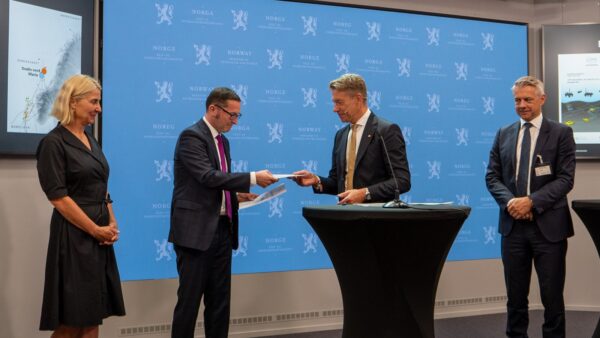Norway approves $18.5bn oil and gas projects amid recovering demand
The Norwegian Ministry of Petroleum and Energy has approved 19 significant oil and gas projects on the Norwegian continental shelf, an investment exceeding NOK 200 billion ($18.5 billion), marking a significant step in the nation’s energy industry.
These approved projects span new developments, enhancements of existing oil fields, and strategic investments for increased extraction at already established sites.
Norwegian Oil and Energy Minister Terje Aasland said: “These are projects that contribute to continued high and stable production from the Norwegian continental shelf, and to employment and value creation for the whole of society. We are further developing the petroleum business so that jobs and large incomes are created for the community.”
Global oil demand took a hit during the first half of 2020 due to the COVID-19 pandemic, resulting in profound uncertainty about future trends. Responding to these unprecedented challenges, the Storting, Norway’s supreme legislature, made temporary alterations to the Petroleum Tax Act in June 2020. These changes aimed to ease the burden for oil companies, enabling them to proceed with planned investments.

A new era in Norwegian oil: Ministry greenlights 19 projects on Norwegian continental shelf. Photo courtesy of Jo Henrik Jarstø/OED/Reggeringen.no.
The oil and gas projects approved during 2020-2022 and falling under the temporary tax changes are projected to result in total investments of about NOK 440 billion, with approximately 290 billion expected to benefit Norwegian entities. These significant investments are anticipated to generate approximately 158,000 full-time jobs from 2020 to 2029, underscoring the central role of the oil and gas industry in Norway’s economy.
The rights holders have revealed that the projects which the Ministry of Petroleum and Energy have concluded have total investments exceeding NOK 200 billion. The endorsed projects comprise significant endeavors in the North Sea and the Norwegian Sea, with major operators such as Aker BP, Equinor, and Wintershall Dea leading key developments like Yggdrasil, Valhall PWP, Fenris, and Symra, among others.
These oil and gas projects in Norway not only represent a substantial economic investment but also indicate a commitment to technological innovation and infrastructure improvement in the industry. For instance, the Yggdrasil development, located in the North Sea, consists of several extraction permits and discoveries, with an estimated investment of around NOK 115 billion. The project, utilizing a joint power supply from land and a common pipeline infrastructure, is expected to start production in 2027, creating an estimated 65,000 man-years over its lifespan.
Similarly, the Valhall PWP and Fenris development, with a total investment of around NOK 50 billion, also underscores Norway’s commitment to leveraging existing resources and infrastructure for increased production. The development plans to connect a new unmanned platform on the Fenris field to a new integrated process platform at Valhall.
In the Norwegian Sea, projects like Irpa and Verdande further emphasize this focus on maximizing existing infrastructure for future production. For instance, Irpa, managed by Equinor, is planned to be developed with a subsea facility that will connect to the Aasta Hansteen platform.
Moreover, the ministry has addressed projects where a decision has been made regarding investments for increased extraction at existing fields, specifically Solveig phase 2 and Andvare.
The commitment of the Norwegian Ministry of Petroleum and Energy to these vast oil and gas projects symbolizes the resilience of the industry, even amidst challenging global circumstances. As the world’s oil demand recovers, these initiatives are poised to place Norway at the forefront of global petroleum production, leveraging its unique resources and infrastructure to meet global energy needs.